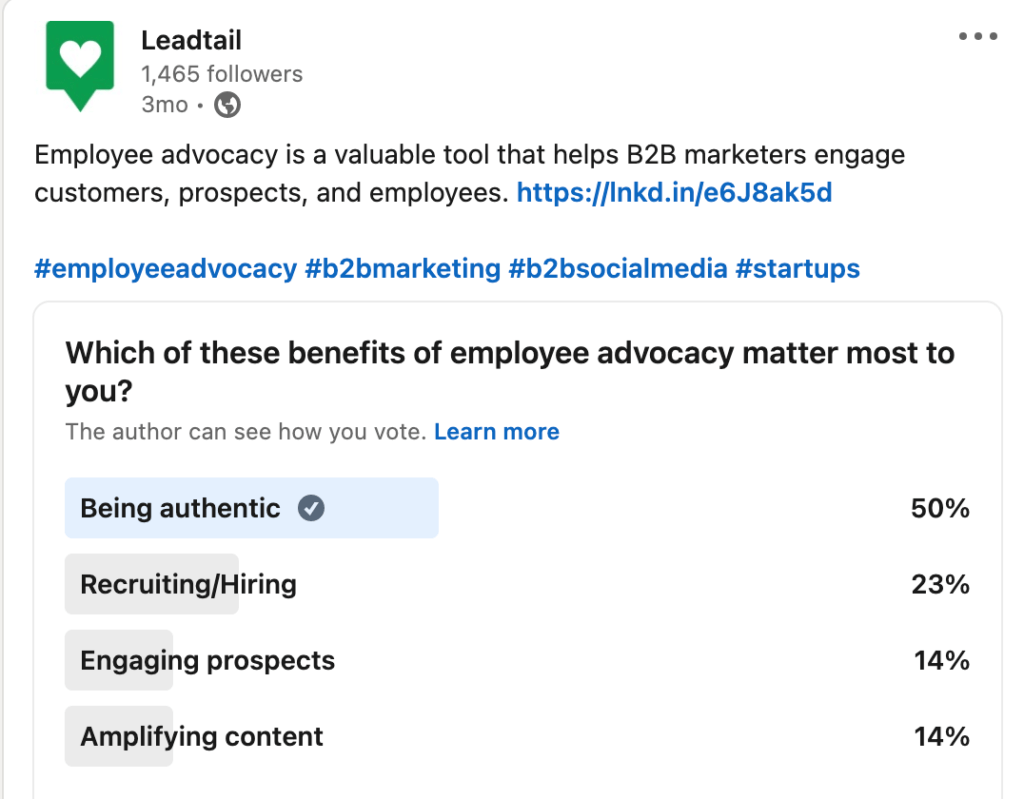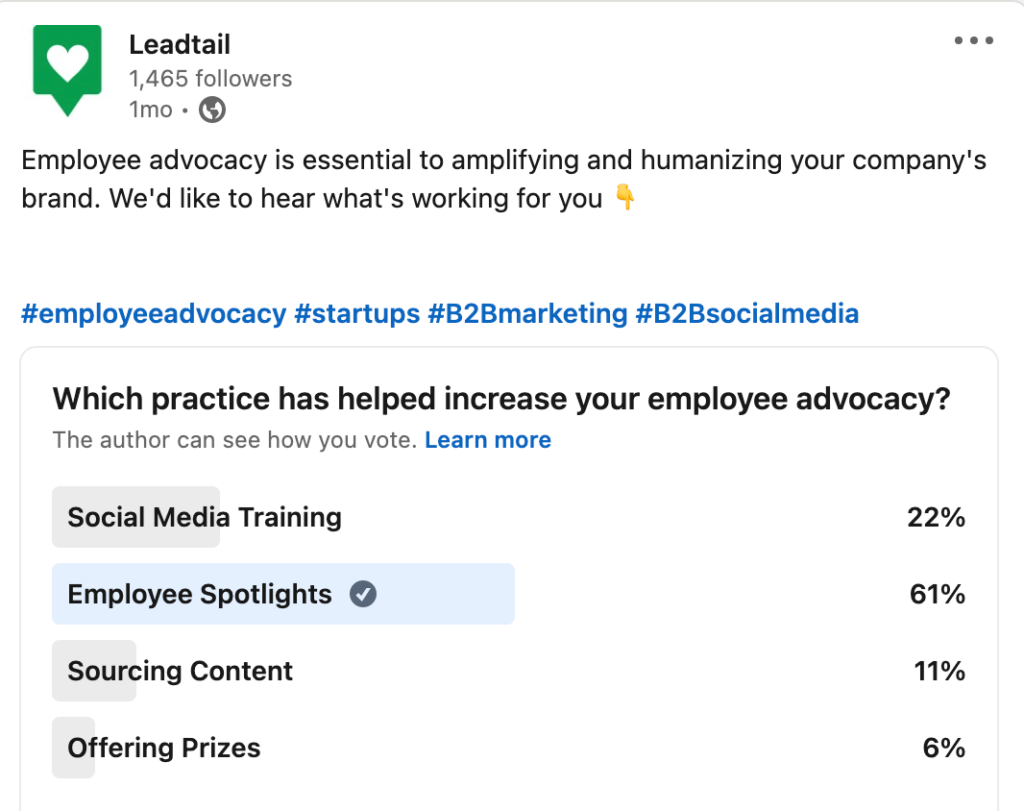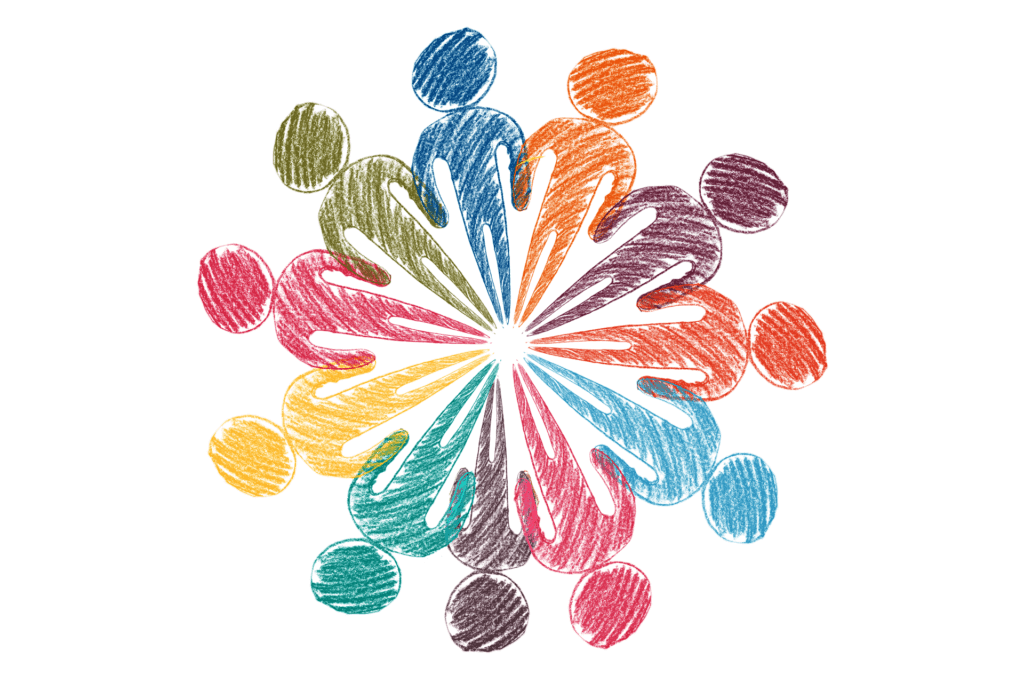One of the most critical things B2B companies can do to grow brand awareness and build a community on social media is to implement an employee advocacy program.
When employees share your company content on their personal social media accounts—blog posts and articles, product announcements, or pictures from a company event or employee get-together—they help build your B2B brand and raise your company’s profile online.
Employee-shared content improves your brand’s reach and engagement on social media. In fact, employee posts perform better than content shared directly from companies’ social media pages. That’s because people trust recommendations from friends and colleagues more than they trust “professional” brand messages.
The reason for this is simple. It all boils down to authenticity. People want to connect with other people. Employee advocacy humanizes your brand and helps potential customers experience the authentic connection they crave.
The data backs this up. People tend to trust regular employees over the CEO of a company. And if one of your company’s technical experts shares information about your product, the trust level increases even more.
Authenticity Wins the Day
We recently asked the Leadtail community what was most important to them when it comes to employee advocacy on social media. Authenticity was a clear winner, with half of the respondents saying “being authentic” was the most important benefit of employee advocacy.

Authenticity is a great way to build your employer brand to attract and retain talent. When potential employees are happy and engaged, it reflects well on your company. It shows you care about your employees and that you’re providing a good work environment. That’s the kind of reputation that attracts top talent and builds long-term loyalty.
Putting the spotlight on your employees is a fantastic way to build an advocacy initiative. When you showcase employees, they’re more likely to share—after all, everyone likes to show off their accomplishments at least a little bit.
Advocacy is Always Win-Win
When you emphasize the “employee” part of employee advocacy, employees are quick to respond with the “advocacy” part.
The Leadtail community agrees. When we asked what worked best to encourage employee advocacy in their organizations, 61% responded with “Employee Spotlights.”

Employee advocacy has massive benefits for employees as well as companies.
For employees, it’s a great way to build their professional brands and expand their reach on social media. Advocacy initiatives give employees opportunities to contribute to industry conversations and drive thought leadership among their peers. It can also lead to new opportunities and networking connections and help them accomplish their career goals.
For B2B companies, employee advocacy humanizes your brand and helps your make connections with your customers that might not otherwise be possible. It builds trust in your audience and enhances your brand’s credibility and reputation.
The best advocacy programs lean into the “win-win” equation and offer employees the spotlight. Other ways to center employees in your advocacy efforts include social media training, incentives and gamification, and employee input for the type of content that goes out on social channels.
Impactful Advocacy
If your B2B brand is struggling to make an impact on social media, employee advocacy is one way to inject new energy into your social presence, create enthusiasm around your brand, and improve morale in the process.
The most important thing to remember, according to the Leadtail community, is to amplify your employees’ voices and accomplishments, maintain authenticity, and focus on win-win initiatives for the company and its employees.
When B2B brands get it right, employee advocacy can significantly impact the brand, build greater trust, engage both employees and potential customers, and transform the bottom line.
Want to have a conversation about employee advocacy? Let’s talk.
